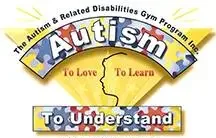Understanding Autism: Support and Resources for Families
Autism Spectrum Disorder (ASD) is a complex neurological condition that affects how individuals communicate, interact, and perceive the world around them. Due to the diverse range of symptoms and challenges associated with autism, support is crucial for those on the spectrum and their families. In this blog, we’ll explore autism, its characteristics, and how families can find support and resources, including the valuable information available at Autism Gym.
What is Autism?
Autism is characterized by difficulties in social communication and the presence of restricted or repetitive behaviors. Each person with autism is unique; some may have significant challenges, while others are high-functioning and excel in specific areas. Common traits of autism may include difficulty with eye contact, challenges understanding verbal and non-verbal cues, a preference for routine, and intense focus on particular interests.
Early Intervention
Research indicates that early intervention can significantly improve outcomes for children with autism. Programs that focus on communication, social skills, and behavioral approaches, such as Applied Behavior Analysis (ABA), can lay the foundation for lifelong success. Families are encouraged to seek evaluations and support as early as possible. The earlier a child receives help, the better they can develop social, emotional, and educational skills.
Creating a Supportive Environment
A structured, supportive environment is vital for children with autism. Routines help children feel secure, while visual schedules can make transitions easier. Additionally, sensory sensitivities are common among those with autism, so creating a calming space can help reduce anxiety. This may include dim lighting, noise-canceling headphones, or soothing textures.
Therapeutic Resources
Treatment for autism can encompass a range of therapies tailored to the individual’s specific needs. Speech therapy can enhance communication skills, while occupational therapy can aid in developing daily living skills and managing sensory issues. Social skills groups can offer opportunities for peer interaction and learning in a safe and supportive environment.
Parents can also benefit from support networks and resources. Connecting with other families dealing with similar challenges can foster a sense of community and offer invaluable shared insights. Websites like Autism Gym provide a wealth of resources, including guidance on activities, therapeutic strategies, and training for families and caregivers. The information found on Autism Gym is instrumental in empowering families, giving them the tools to help their children thrive.
Advocacy and Inclusion
Advocacy plays a pivotal role in creating a supportive environment for individuals with autism. Encouraging inclusive practices in schools and communities fosters greater understanding and acceptance. Parents can effectively advocate for their children through Individualized Education Programs (IEPs), which provide tailored educational plans tailored to meet their specific needs.
As awareness around autism grows, so does the push for societal acceptance. Organizations and resources dedicated to autism advocacy continue to emerge, encouraging communities to embrace neurodiversity and offer support for individuals and families.
Conclusion
Navigating the world of autism can be challenging, but with the proper support and resources, families can significantly improve their quality of life. From early intervention and therapeutic strategies to community connections and advocacy, there are numerous avenues for assistance. The journey may be complex, but understanding, patience, and access to practical tools—such as those found at Autism Gym—can make a meaningful difference. Together, we can create a more inclusive environment for individuals with autism, empowering them to reach their full potential.

